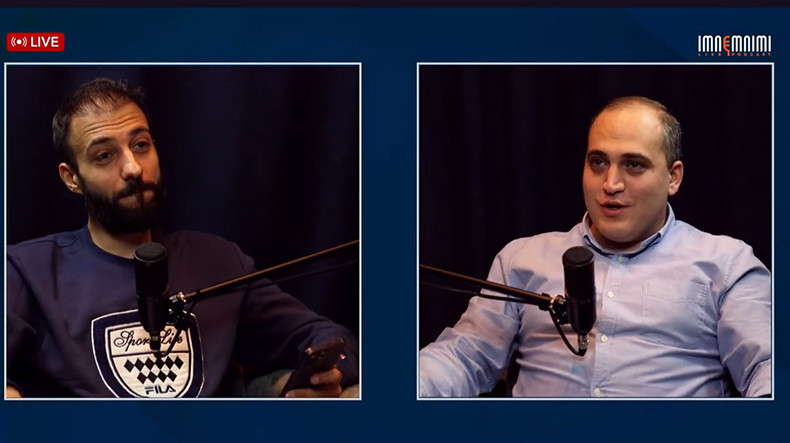
Two more political prisoners in Armenia
On March 22, two popular Armenian video podcasters were violently detained in Yerevan on charges of using slur language against the Prime Minister Nikol Pashinyan and his regime. The prosecutor’s office and the courts were quick to wrap the criminal case and incarcerate both for two months period.
Narek Samsonyan and Vazgen Saghatelyan are hosts to a popular podcast “Imnemnimi” with up to 50k regular audience. These are, however, not the first cases of when oppositional minded activists and politicians are being arrested in Armenia for their public speech. In parallel, Western-funded advocacy groups and Western embassies stay muted, and sometimes note ‘democratic progress’ by the incumbent regime.
There are a number of key takeaways in this situation, worth taking note of:
(1) The unnecessary brutality by which one of these media personalities was detained is a show of force against those who may consider voicing disagreement with the policies of Nikol Pashinyan.
(2) The criminal case, according to Prosecutor’s office, is based on the “slur language” article, which was adopted by the parliament in the aftermath of the 2020 war to silence critics, but then decriminalized following pressure from Council of Europe, OSCE and other players (Art 137.1 of former Penal Code). Now the content of the same article is wrapped in the Article 297 of the Penal Code as “hooliganism”. It’s ironic that decades long dictatorship of Ilham Aliyev had often used this same article to silence his critics too.
(3) This brutality and incarceration of opponents is a continuance of psychological pressure against those majorities in the population who are not just against Pashinyan’s treasonously yielding sovereign territories to Azerbaijan, but speaking up.
(4) In the near-complete absence of a legitimate domestic political process, it’s mostly activists and social media personalities that are expressing disagreement, in their own way. Silencing them therefore has direct links to much-criticised domestic, foreign and security policies of the Pashinyan regime.
(5) This fresh wave of political repressions is following the move to yield a few villages in Tavush region to Azerbaijan, at its demand. Pashinyan met with the villagers previous week, and threatened them with war, if they did not obey. The podcasters and their guests had been vocal against this, as they call, treasonous policies.
(6) Majority of mainstream and non-Civic contract affiliated factions in Armenia have been vocal about the security risks emanating from yielding more territories to Azerbaijan. Incarcerating these two media personalities will arguably teach a lesson to those considering to speak up. But it will barely silence everyone. A small fracture in the system will likely result in collapsing Pashinyan’s power vertical.
(7) And lastly, Pashinyan over the past years has successfully build a system that pre-2018 critics of the former regime had often characterised as “state capture”. All judges, the entire judiciary, executive system, the legislature – and most prominently also the Western-funded ‘civil society’ actors – all are serving Pashinyan’s agenda of seeking peace with neighbors at the expense of dramatically weakening the foundations of the Armenian state. If the IRI surveys are correct in mirroring the social attitudes, it’s indeed about the first fracture, and then the system will become too weak to stand. These two podcasters were arguably close to causing the fracture.
Who’s next?
Related news
- Activist Vazgen Saghatelyan placed in custody
- Opposition activist Vazgen Saghatelyan arrested
- 'Assault on free speech': Oppositionist slams fellow's arrest
- 'Political repression': Lawyer slams opposition activist's arrest
- Video shows brutal arrest of opposition figure
Newsfeed
Videos






























